PinkNews Awards 2018: Here are all the nominees for Campaigner of the Year
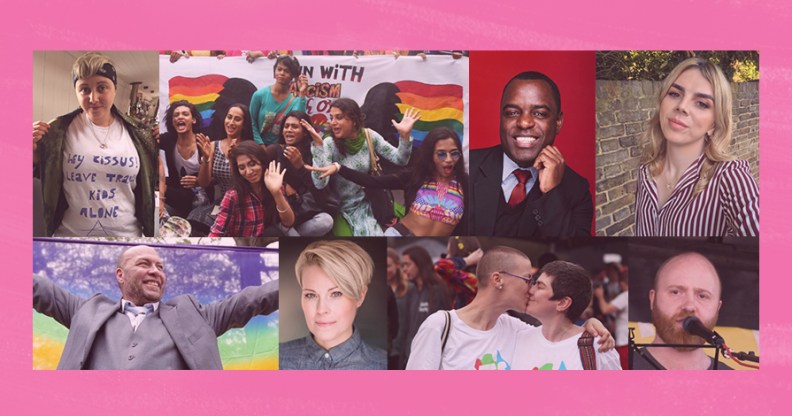
The Campaigner of the Year Award seeks to recognise the work of campaigners and activists across the world to advance LGBT+ equality.
In 2017 Jonny Benjamin picked up the award for his work as a mental heath campaigner and founder of ‘Find Mike’. The campaign helped track down the man who stopped Benjamin taking is own life and raised awareness for mental health across the UK and the rest of the world.
The winner of the 2018 award will be announced at the PinkNews Awards on October 17.
You can cast your vote here.
Carla Ecola
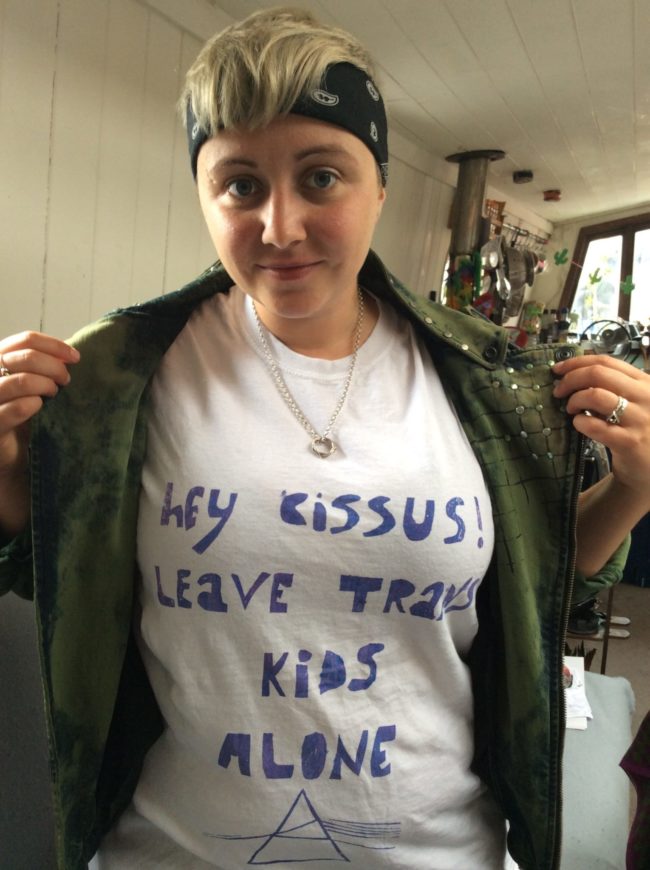
(Cara Ecola)
Carla Ecola is the founder of The Outside Project, the UK’s first LGBT+ crisis/homeless shelter and community centre.
The problem Carla is trying to solve is the higher rates of homelessness suffered by LGBT+ people, which means a large proportion of those on our streets are within the LGBT+ community. 25 percent of trans people experience homelessness at some point in their life.
Carla publicly launched the project at Pride in London 2017, and during the summer of 2017 crowdfunded £11.5k, and delivered a shelter and community hub through grant funding between December 2017-March 2018.
Following the success of this pilot they received support from the Mayor of London through the Rough Sleeping Innovation Fund to develop into a 24/7 service.
They are currently looking for a permanent venue to launch the project full time.
Frank Mugisha
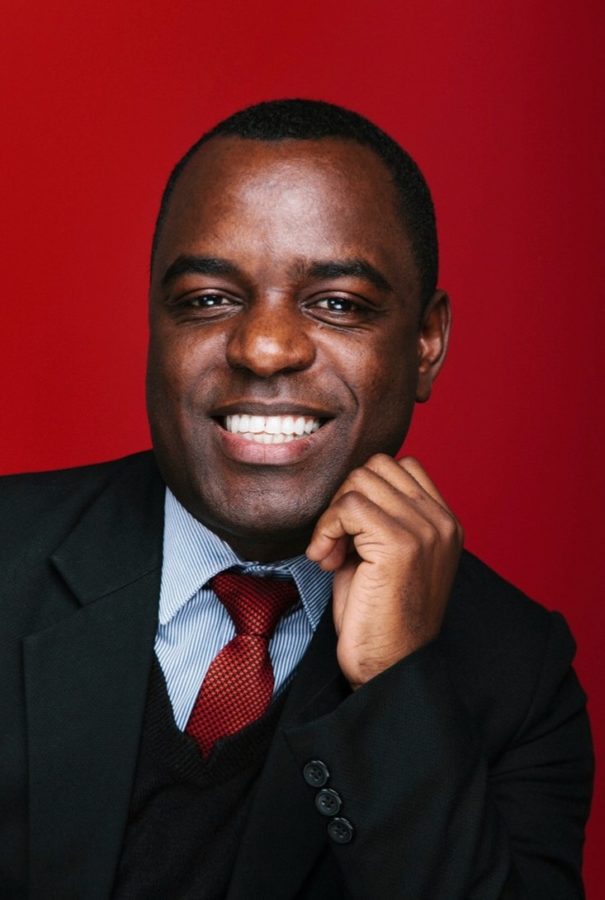
(Frank Mugisha)
Frank Mugisha is an Ugandan LGBT+ campaigner, and the executive director of Sexual Minorities Uganda. In 2017 he was named one of the world’s greatest leaders by Fortune Magazine, having previously been awarded the Robert F Kennedy Human Rights Award in 2011.
Frank is fighting against the homophobic laws of his native Uganda.
In the past few years, his activism focused on the Uganda Anti-Homosexuality Act signed in by the President of Uganda in 2014. The Constitutional Court of Uganda ruled the Act invalid in the same year.
Frank is active in TCEN (The Commonwealth Equality Network) where he shares best practice with activists in other Commonwealth countries, and this year was part of the TCEN delegation to CHOGM (Commonwealth Heads of Government Meeting) where he along with others lobbied for the inclusion of LGBT+ issues on the main agenda.
His work has the potential to change the lives of the 41 million people resident in Uganda as well as influence those of millions more throughout the African continent and further afield.
Jason Jones and Peter Laverack
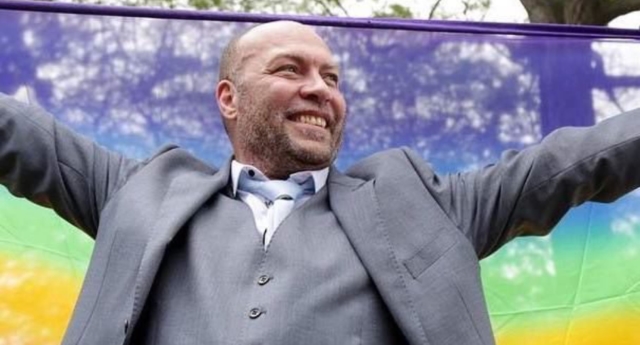
(Jason Jones)
Jason Jones is an LGBT+ activist born in Trinidad and Tobago, who now resides in the United Kingdom. In 2017 Jason brought a case in the Trinidadian courts to repeal colonial ‘buggery’ laws that carried the maximum penalty of 25 years in prison. Earlier this year in April 2018, the ruling judged that sections of the Act were unconstitutional, striking down the law.
Peter Laverack is a human rights barrister. He was the team’s advisor on international law and strategy. Apart from Trinidad, Peter works on LGBT+ litigation around the Commonwealth, including the ongoing same-sex marriage challenge in the Cayman Islands.
The case is significant not only because of its impact on the citizens of Trinidad and Tobago. Firstly, it is a positive example in a region of the world that lags behind on LGBT+ issues.
Except for a similar ruling in Belize in 2016, there has been little progress in the region, and in February 2018 Bermuda became the world’s first nation to reverse a law legalising same-sex marriage.
Secondly, the judgment has an effect on the seven other Caribbean nations that have the Privy Council as the highest court of appeal, meaning rollback of decriminalisation could not happen in future if similar buggery laws were overturned in other countries.
John O’Doherty
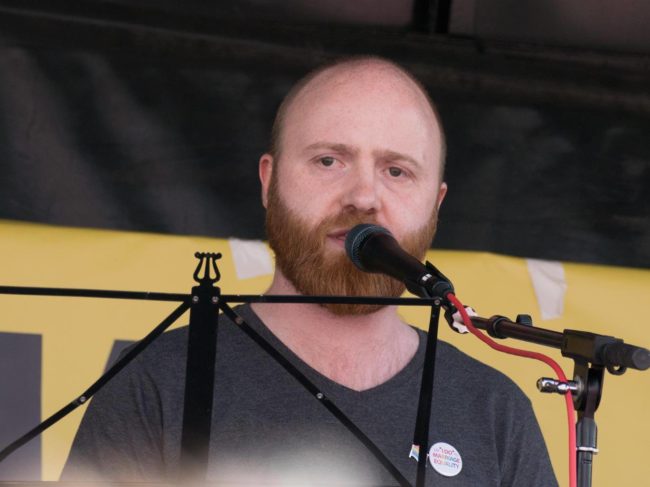
(John O’Doherty)
John O’Doherty is the director of the Rainbow Project. The Rainbow Project is a health organisation working to improve the physical, mental, and emotional wellbeing of LGBT people in Northern Ireland. It is the largest LGBT organisation in Northern Ireland.
Rainbow Project is a member of a consortium of organisations forming the Love Equality Campaign, which pushes for equal marriage in Northern Ireland.
This year, the Rainbow Project has had a busy year especially in its work progressing same sex marriage.
In October 2017 it announced a new partnership with Stonewall to deliver workplace equality programmes in Northern Ireland. In June 2018 a law allowing men convicted of abolished gay sex offences to seek a pardon was passed, that the Rainbow Project worked to achieve alongside the MoJ.
In September 2018 it coordinated a statement from 29 large companies, including Citi, Deloitte, and PwC, to calling on Theresa May to legalise gay marriage in Northern Ireland.
Northern Ireland is the last remaining part of the United Kingdom to achieve same sex marriage, despite popular opinion, a majority of lawmakers being in favour, and despite the Republic of Ireland’s legalisation of same sex marriages.
John and his team at the Rainbow Project have the potential to change the lives of many in Northern Ireland, winning a symbolic battle too and bringing Northern Ireland in line with the rest of the country.
Rosanna Flamer-Caldera
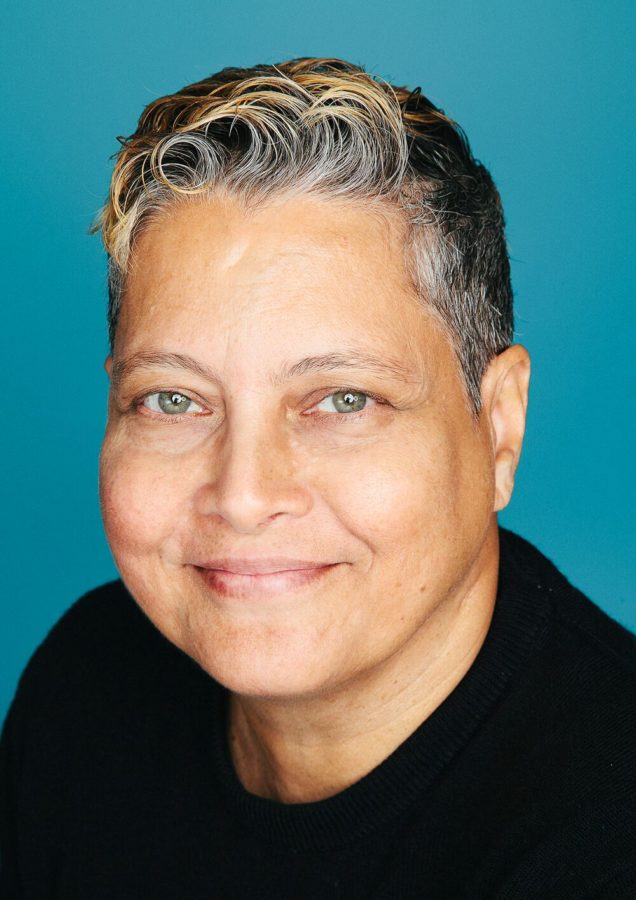
(Rosanna Flamer-Caldera)
Rosanna Flamer-Caldera is the executive director of Equal Ground, the main LGBT organisation in Sri Lanka.
The organisation works especially closely with the L, B and T communities towards tackling human rights, sexual health, and gender-based violence issues.
Rosanna has previously been co-secretary general of ILGA, the International Lesbian and Gay Association.
In 2018, Rosanna has served as the chair of The Commonwealth Equality Network, a network of around 33 LGBT organisations from commonwealth countries. 2018 was a big year for TCEN. TCEN sent a majority of its activists to London to participate in the Commonwealth Heads of Government Meeting, to attempt to put LGBT rights on the agenda.
The network managed to gain assurances from a number of member governments on their commitment to LGBT rights, and Theresa May made an unprecedented apology for the homophobic laws brought about by British colonialism.
As an activist operating in a country of 22m people, Rosanna is pioneering the LGBT rights battle not only in her own country through Equal Ground, but all across the world as the chair of TCEN in a seminal year.
She remains focused on achieving decriminalisation before 2020 – with the recent success in India providing a boon for the other countries in the region.
Shon Faye
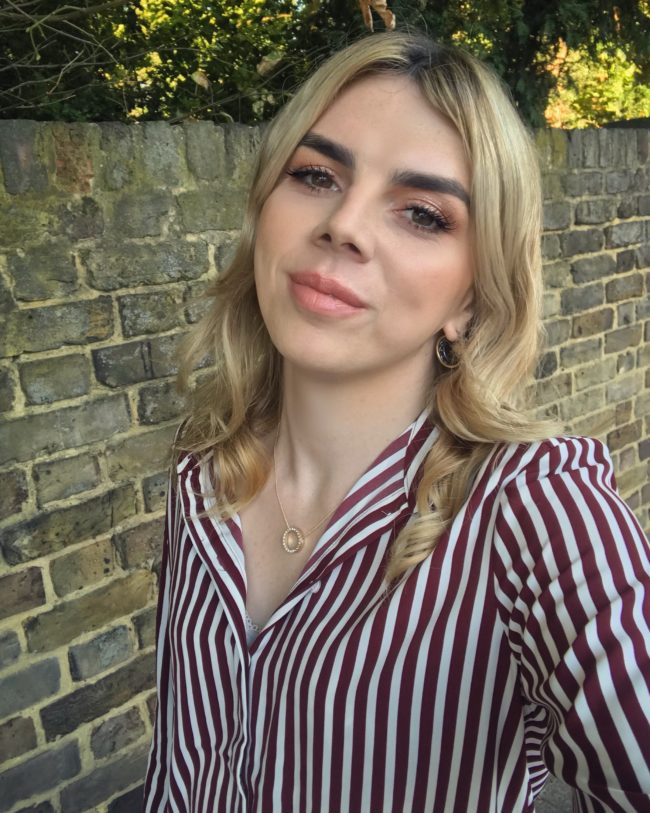
(Shon Faye)
Shon Faye is a writer and activist on LGBT+ issues with a focus on women’s rights and mental health.
Shon has written on LGBT+ issues for The Guardian, The Independent, Vice, and Attitude – and is also an editor-at-large with Dazed, the bi-monthly style magazine. In December 2017, Owen Jones named her amongst some of Britain’s emerging brilliant trans voices.
In 2018, Shon has stepped up and focused her activism and writing on trans women’s issues, countering the false narratives in the mainstream media about the government’s planned review of the Gender Recognition Act.
She advocates for trans women to have access to rape and domestic violence services, working as Stonewall Cymru’s trans liaison officer and participating in an UN Women campaign.
In a time when trans voices are not being heard, and anti-trans voices are being amplified, the potential of Shon’s activism to change lives and prevent harm for the community is vital.
Vicky Beeching
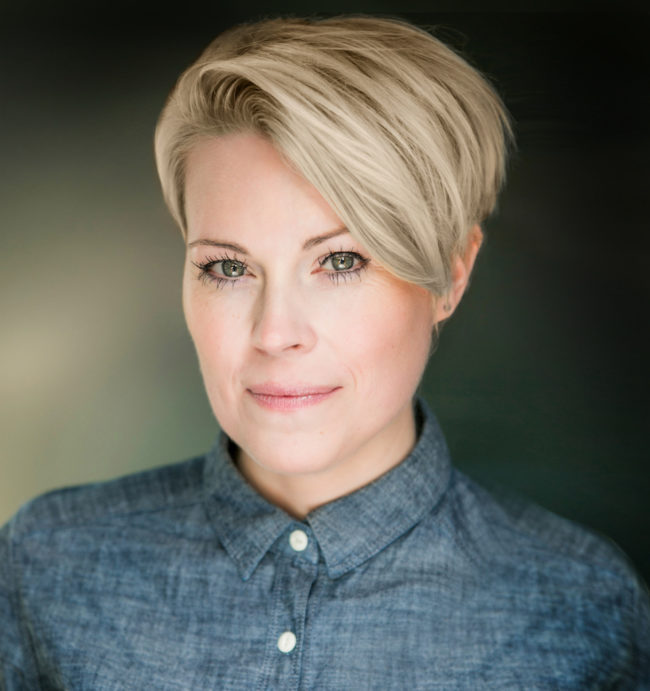
(Vicky Beeching)
Vicky Beeching is an equality campaigner working to make the church a better place for LGBTQ+ people. From her teens to her early thirties, she was a well-known poster girl for evangelical Christianity in the UK and US, speaking and singing in churches around the globe. Her decision to come out as gay in 2014 cost her that job and made her a target for immense vitriol from traditional churches.
Since 2014, she’s channelled her energy into campaigning for change on issues like conversion therapy and equal marriage, often appearing on BBC News, Sky News, Radio 4 and in national newspapers. As a result of her coming out thousands of people of faith from around the world have followed her lead and found the courage to do the same.
Beeching’s new book, titled Undivided, was published by HarperCollins this summer and is a memoir describing her own experiences of growing up gay and Christian, undergoing an exorcism, becoming hospitalised due to stress, and the impact it all had on her mental and physical health.
The Guardian named Vicky as “arguably the most influential Christian of her generation” due to the impact she is having in moving the conversation around faith and sexuality forward. She believes that no one should be forced to choose between their LGBTQ identity and their religious faith and is working to see that become a reality in the UK church.
All the campaigners who led to decriminalisation of homosexuality in India
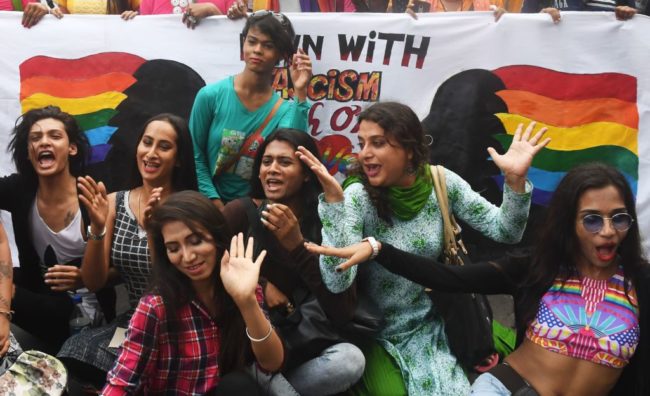
(Getty)
In September 2018, the Indian Supreme Court ruled unanimously that Section 377 of the Indian Penal Code, criminalising same-sex sexual activities, was unconstitutional.
The original legislation was introduced during the British rule of India and was modelled on the United Kingdom’s Buggery Act. There have been 24 years of legal challenges against the law.
There were five petitioners who were signatories to the petition that succeeded in September, but the many challenges over the last few decades had a crucial role in ensuring its repeal.
The petitioners were also aided by national and international charities and campaign groups including the Naz Foundation and the Kaleidoscope Trust.
In 2009 the Delhi high court ruled against the repeal but this was overturned by the Supreme Court four years later.
The impact of this change cannot be understated. As the second most populous country in the world, up to 104 million LGBT people have been affected by this change in the law.
There is no one person responsible for these efforts – the LGBT community in India and internationally pulled together, both through legislative and judicial routes, to push for change over a number of years.
All the campaigners for marriage equality in Australia
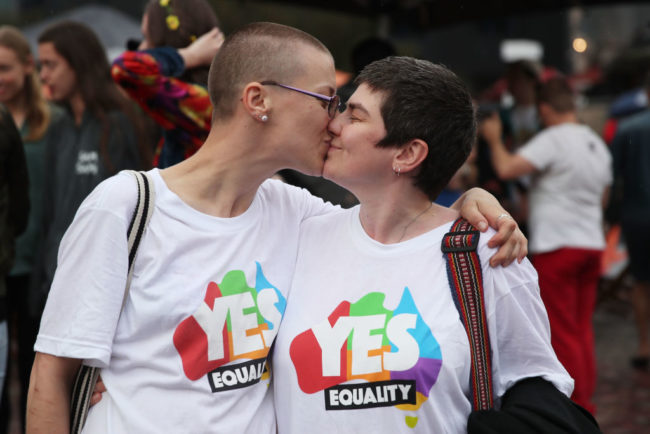
(Getty)
In November 2017, just one month after the 2017 PinkNews Awards, a national referendum successfully changed the law allowing for same-sex couples to marry in Australia. The yes vote carried 62 percent of the vote, to the no vote’s 38 percent.
Before the July 2016 federal election in Australia, the Turnbull government promised to hold a national vote on same-sex marriage.
After wrangling over the form the vote would take – resulting in a voluntary postal vote rather than a compulsory plebiscite/referendum – postal votes began to be sent out on 12 September 2017.
The Australian Marriage Equality group was an advocacy group that became the main campaigning group for marriage equality in Australia.
After a heated campaign that saw multiple former prime ministers, CEOs, and celebrities come out in favour of marriage equality, this committed team of people comprised of all sectors of society prevailed.
As a country of 25m people, as well as one of the last English-speaking developed countries to adopt same-sex marriage, this has a huge impact on the people of Australia, and sends a strong message to other countries where same-sex marriage remains illegal.
The PinkNews Awards is supported by Lloyds Banking Group.


